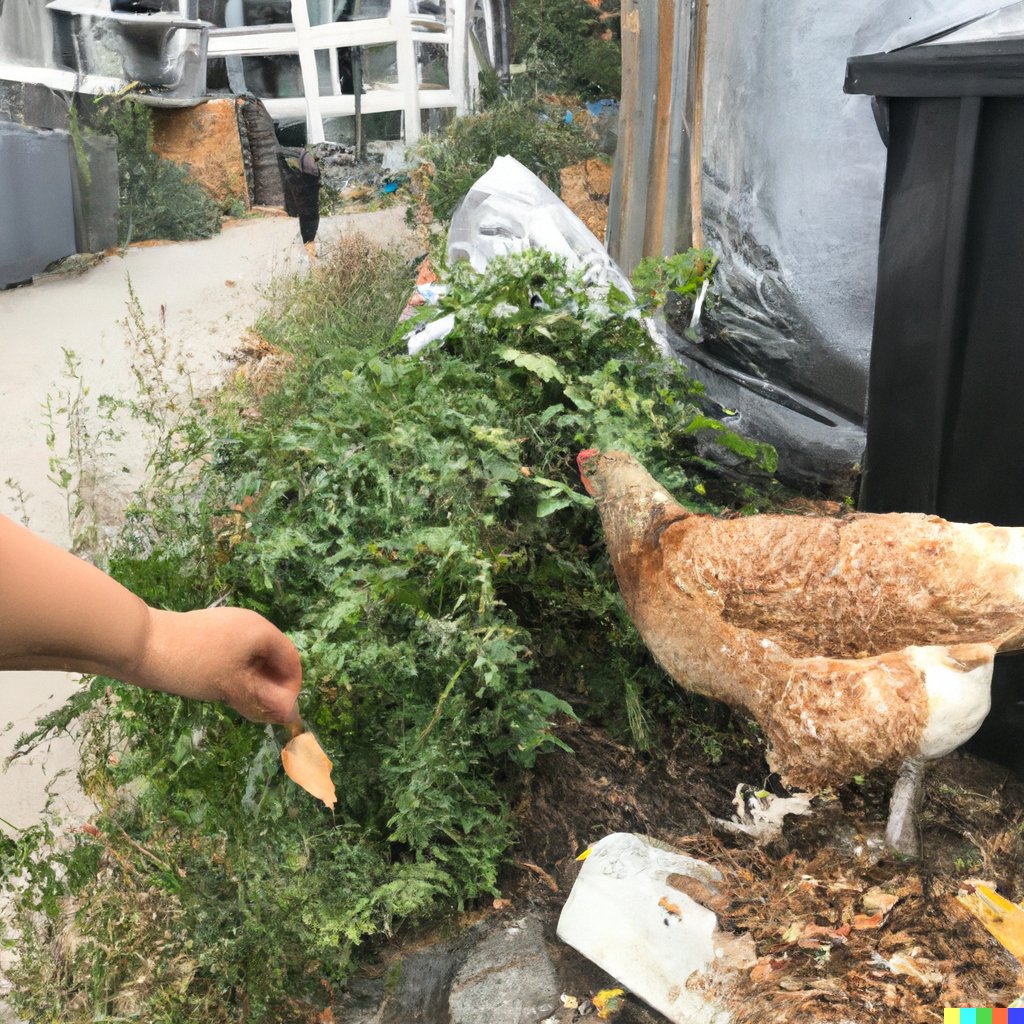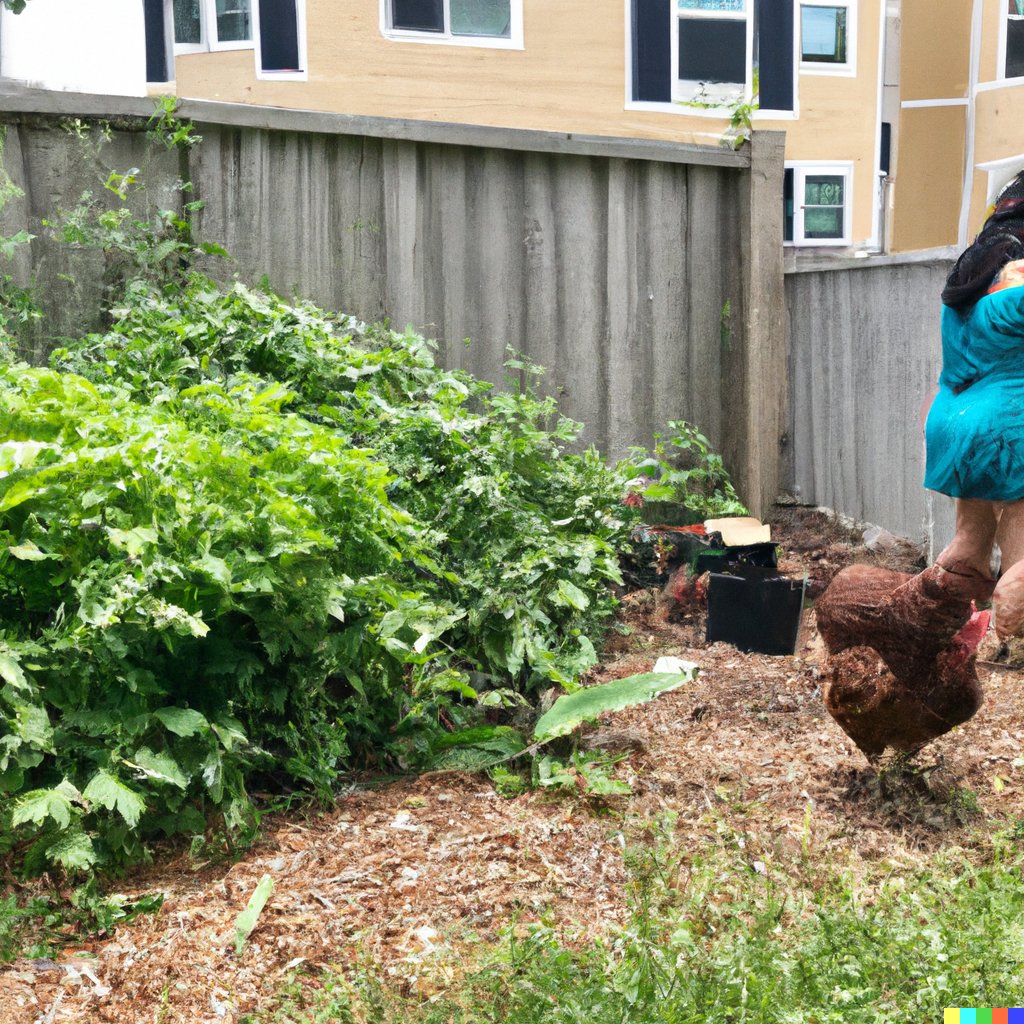
Imagine how one chicken can change the lives of you and your entire family. In today's fast-paced and uncertain world, it is important to find ways to create self-sustaining and stable households. This article explores the practical benefits of raising chickens and how it can positively impact you and your loved ones in unexpected ways.
The Reality of Food Waste
The Harsh Reality of Wasted Food
Food waste is a major concern! Here's why:
- Food production causes a lot of unused harvest.
- Wasted resources, like water, energy and fertilizers, hurt the environment.
- Food waste makes world hunger worse and unevenly distributes resources.
- The economic cost of food waste is huge, affecting individuals and society.
It's more than what we already know. We can fight food waste with smart planning and awareness.
Help make a difference today! Join the fight against food waste and contribute to reducing resources, ending hunger, and making a better future for everyone. Don't miss out on the chance to be a part of positive change.
Food waste is like a bad trick. Instead of making things vanish, it makes landfills swell and the planet suffer.
Environmental Costs of Food Waste
Food Waste's Impact on the Environment
Food waste has major environmental costs. For example, fossil fuel consumption, pollution, methane emissions, composting challenges and landfills. Plus, valuable organic material is lost forever and becomes contaminated.
A small rural community had a fantastic experience when they reduced their food waste. They composted organic scraps and properly managed leftovers. This lessened their landfill contribution and improved their garden with high-quality compost. This inspired others in the community to do the same.
The real solution in food waste is to get a chicken! Keep it away from your wallet though.
Strategies to Reduce Food Waste
Strategize to Minimize Food Waste!
- Meal plan and use creative storage solutions.
- Look into composting with worm composting or black soldier fly larvae.
- Try bokashi bucket systems or refeed waste to chickens/pets.
These tactics reduce waste and create a more sustainable lifestyle. Minimize environmental impact and use resources efficiently. Start now and join the movement! Together we can make a positive change.
Bawk your way to the future of sustainability. Get a small poultry farm in your backyard. Go green with urban chickens!
The Role of Urban Chickens
Urban Chickens: Transforming Sustainable Urban Farming!
As cities take up more land, urban chickens are becoming more important. They offer a sustainable way to manage food waste, plus provide free eggs without antibiotics or pesticides.
Chickens also make composting easier. Their natural pecking and scratching breaks down organic waste into nutrient-rich soil for gardens. This reduces waste buildup and supports biodiversity, as chickens control pests and weeds without chemicals. Plus, their manure is great fertilizer!
Pro Tip: For happy chickens, give proper housing, feed, and regular vet check-ups.
The Bigger Picture: We need chickens in every home to change the world!
The Bigger Picture
One lone chicken in a household can have big impacts on our lives and the environment. These have been identified as:
- Exploring environmental solutions, such as reducing our carbon footprint.
- Creating a sense of community and connection.
- Providing healthier nutrition through eggs.
- Improving food security.
- Giving animals better living conditions.
- Providing optimal nutrition for the chicken.
The positive effects of a single chicken are far-reaching - from the home to broader society and the environment.
Experts and local poultry communities are great resources to help maximize the positive impact of a chicken. And don't forget: recycling kitchen scraps into chicken feed is clucking great!
Feeding Chickens Scraps from the Kitchen
Integrating Kitchen Scraps: Maximizing Nourishment for Chickens
Incorporating kitchen scraps into chickens' diets is an excellent way to provide them with healthy treats and make sure no leftovers are wasted. Scrape dinner plates or bring home remnants from dining out. Doing so will boost their nutrition and widen the variety of their meals.
Pro Tip: Avoid cooked bones, onions, citrus fruits, chocolate and anything spoiled. Also, remember that chickens eat anything they can peck - even your expectations of a productive garden!
What Can Chickens Eat?
Feeding your chickens right is essential. We all know they eat grain and bugs, but fruits and veggies are a nice plus. Some options for balanced nutrition include:
- Cucumbers
- Pumpkin seeds
- Apples (no peels)
- Healthy bread
- Broccoli
- Cabbage
- Corn on the cob
- Eggs (scrambled & hard-boiled)
- Fish
- Garlic
- Grapes
- Lettuce
- Oats
- Pasta
- Peas
- Rice
- Seafood
- Spinach (in moderation)
- Squash
- Tomatoes (not green ones & no leaves/vines)
- Watermelon
Explore these options for balanced nutrition. Don't miss out on giving your flock the best diet for a happy & healthy life. Who needs superheroes when you can have a chicken that lays eggs, repairs fences, and takes out the garbage? That's real power!
More Power to the Consumer
Consumers now wield more control over what they buy. This power shift is due to increased access to info, transparency and choices. With this newfound power, consumers can make informed decisions based on their values and preferences. They're no longer dependent upon companies' marketing messages. This puts them in the driver's seat, allowing them to call the shots when it comes to market trends.
Moreover, their power extends beyond individual decision-making. Consumers can join forces to make demands of companies and industries. Social media provides a platform to share grievances and gain support from like-minded folks, resulting in powerful movements such as boycotting unethical practices or promoting sustainable alternatives.
This shift has wider implications for society too. By making conscious choices about their consumption, individuals can contribute to social change. Supporting local businesses, for instance, can stimulate local economies, create job opportunities and promote entrepreneurship. It also strengthens community bonds. The shared experience of embracing small-scale chicken keeping, for example, enables neighbors to connect and support one another while enjoying surplus eggs.
To fully tap into consumer empowerment, here are a few tips: educate yourself; support ethically-driven businesses; engage in campaigns/movements; and support local and small businesses. Consumer power can shape markets, foster social change and promote an inclusive and sustainable future. Move over Wonder Woman, empowering women with one chicken at a time is the real superpower!
Empowerment of Women:
Chicken Keeping - A Key to Women's Empowerment!
Many cultures rely on women to manage chicken keeping. Resources and training can help them raise chickens, leading to economic empowerment and gender equality. Maria, from a rural area, was given support to start her own poultry business. This provided a steady source of income and enabled her to invest in her children's education and healthcare. Maria gained confidence, independence, and influence in her community.
Recognizing the potential of chicken keeping as a way to empower women, initiatives can provide training, resources, and mentorship to female poultry farmers. This support enables women to become self-reliant, empowering them to make decisions that shape their lives. Empowering women through chicken keeping is a big step towards achieving gender equality.
Plus, it's an environmentally friendly way to save the trees - get a chicken, it's like having a tiny lumberjack that also lays eggs!
actively fight deforestation
To combat deforestation, we should all do our part! Measures such as buying less food, reducing waste, producing protein indoors, even in small spaces, and keeping chickens as pets are key. This approach is sustainable and helps protect our forests.
It's worth noting that these actions not only combat deforestation, but also help us live sustainably. By committing to these practices, we can make a huge difference in preserving our forests and protecting our environment.
We shouldn't forget the power of one chicken in our homes! So, let's start taking action: reduce food consumption, minimize waste, produce protein at home, even in small spaces, and consider chickens as pets. Small changes can lead to a greener future. Together, we can make a difference and create a sustainable world for generations to come!
What is the transformative impact of one chicken in everyone's home?
The transformative impact of one chicken in everyone's home refers to the positive changes that occur when a family or individual chooses to raise a chicken in their home. This can include benefits for the environment, personal health, and financial stability.
What are the environmental benefits of having one chicken in your home?
Raising one chicken in your home can have several environmental benefits. Chickens can help control pests and weeds in your garden, reducing the need for harmful chemicals. They also produce manure that can be used as a natural fertilizer for your plants. Additionally, raising chickens promotes sustainable living and decreases the carbon footprint of food production.
How can having one chicken in your home improve your personal health?
One chicken in your home can provide a source of fresh, organic eggs which are known to be a healthier option compared to store-bought eggs. Moreover, taking care of a chicken can also be a form of exercise and stress-relief, leading to improved mental and physical health.
What financial benefits can come from raising one chicken in your home?
Raising one chicken in your home can lead to financial benefits in various ways. You can save money on eggs by producing your own, as well as save on the cost of fertilizers for your garden. Additionally, selling excess eggs or even the chicken itself can bring in extra income.
Are there any potential challenges to consider when raising one chicken in your home?
While there are many benefits to raising one chicken in your home, it is important to acknowledge potential challenges. These can include finding suitable housing and ensuring the chicken's safety from predators. It is also important to research local laws and regulations regarding backyard chickens.
What are some tips for successfully raising one chicken in your home?
To successfully raise one chicken in your home, it is important to provide proper housing, food, and water for your chicken. Regularly clean their living space and monitor their health. It is also important to research and follow guidelines for responsible chicken care to ensure the well-being of your chicken.
Conclusion
The concept of having one chicken in every home has far-reaching potential to create a positive impact on a global scale. From providing sustainable food sources and reducing food waste to promoting natural pest control and empowering communities, chickens can play a significant role in shaping a greener, healthier, and more interconnected world.
In conclusion, the seemingly modest idea of having one chicken in every home holds immense potential to effect positive change. From sustainable food sources and reduced food waste to fostering community engagement and supporting local economies, chickens can play a vital role in shaping a greener, healthier, and more interconnected world.

















